

8 Tips For Writing A Great Reflective Essay (With Examples)
Memories, hopes, disappointments, and curiosity run through your life.
By writing a reflective essay, you can capture some of these ephemeral emotions and make sense of who you are. Below, I share eight tips (and a few examples) that will help you do it in a better way. You may have to write a reflective essay as a part of an academic assignment or a college paper. Or perhaps you want to create it for yourself and never show it to anyone. Regardless of the reason, after reading this article, you will hopefully become better at it. They helped a lot of students over the years, so you may check them out.
Here’s how to write a great reflective essay:
1. first, what is a reflective essay.
A reflective essay is a piece of writing in which you analyze your personal experience, reflect on how it changed your life, and what conclusions for the future can you draw from what you’ve learned. It’s a “know thyself” type of essay. The goal here is getting self-knowledge, by stopping to think about your memories, your values, and where you want to go from the present moment onward. By writing your thoughts down, you pursue some kind of deeper truth, about yourself and the world.

2. The power of writing introspectively
Many great men and women (like Charles Darwin or Frida Kahlo ) had a habit of keeping a journal. This seems to be forgotten these days as we record everything through our mobile devices. But the habit of introspective writing and journaling helps you get in touch with your inner self and even improves your mental health. The reflective essay serves a similar purpose. It lets you search for meaning in your life and lets you discover the underlying causes of your actions.
“Life can only be understood backward, but it must be lived forwards.” – Søren Kierkegaard
3. How do you start your essay?
You may start with an introduction of experience, an event, or a memory on which you’ll reflect. If your topic is “a life-changing incident you had when you were a child,” you could start with: I used to live on a sunny farm with my parents and grandparents when I was young. A few days after I turned six, something happened that would alter the course of my life forever. I’m fifty-two as I’m writing this…
This beginning has certain elements that make it effective:
- Introducing the setting and putting the experience in context.
- Hooking the reader by building curiosity and a story.
Here’s another way to start (this excerpt is taken from Didion’s “ On self-respect ”): Once, in a dry season, I wrote in large letters across two pages of a notebook that innocence ends when one has stripped of the delusion that one likes oneself. In reflective writing, you don’t have to follow any strict guidelines or rules. Follow your heart, put some emotion into it, and you’ll create something of value for yourself and others. Start at the beginning, in the middle, or at the end – as long as it’s coherent, you’ll be fine.
“When I discover who I am, I’ll be free.” – Ralph Ellison

4. Learn how to structure your essay
In terms of length, it all depends on your assignment, but usually, the reflective essay has between 300 and 700 words . It has a rather informal structure and the use of language. After all, you’re drilling into your personal experiences, and often, this requires a poetic turn of the phrase. You’re more than welcome to use a wide range of advanced vocabulary .
Introduction
In this part, you set the tone for your reflection. You implicitly or explicitly say what will you reflect on, and what prompted you to do that. If you’re writing an academic paper , you’ll have to be more direct and for example, say: “What follows, are my reflections on what I’ve learned about life during the first year of college”.
In this part, you talk about your actual experiences, memories, and important events in your life. But the purpose is not just to say what happened – that’s a descriptive essay’s job. The true goal here is to ponder the significance of your experiences and think about how they changed you and what you’ve learned from them. Here you can share concrete examples of changes that took place in your life.
Here, you sum up your essay and leave your audience with a final thought. Look ahead into the future and write about how your experiences are going to affect your life from now on. What’s the direction you’re going to take? What is there to look ahead to? You may also look backward and see how different you were in the past, compared to now. “I think it’s good for a person to spend time alone. It allows them to discover who they are and to figure out why they are always alone.” – Amy Sedaris
5. Create an outline for your essay
As with most writing assignments , the work begins with ideation and then creating some sort of outline . Here’s a simple process you can use to get everything ready before you start writing: a) Scan your mind in search of powerful experiences, meaningful memories, and thoughts about your past. This will serve as a raw material from which you’ll sculpt a piece of prose. b) Consider the attractiveness of your topic from the reader’s point of view. You certainly don’t want to bore anyone, so pick something interesting, but important. c) Organize your essay and divide it into a couple of paragraphs. Each paragraph should contain one important idea. d) Decide in which sequence you would like to share your ideas. Put some logic and chronology behind it. e) Jot down any side notes included in the essay. It’s always better to have an overabundance of material.
“Your visions will become clear only when you can look into your own heart. Who looks outside, dreams; who looks inside, awakes.” – C.G. Jung
6. The essay-writing process
The best piece of advice on that is to avoid cliches. It might be hard to do this at first, but decide to speak your truth. Talk about things and feelings unique to you and your life. It’s easy to regurgitate what someone else had said before because it’s a safe territory. Your goal is to open doors to which only you have the keys.
Once you have the idea, you can follow a simple process:
- Write the first draft as quickly as you can (no editing or looking back here)
- Reorganize the first draft if necessary
- Edit for clarity (throw out everything unnecessary)
- Accept that it will not be perfect, and publish it (or keep it to yourself)

7. How to pick the right topic for your essay
If you’re writing an assignment, you’ll probably receive the prompt from your professor. If that’s the case, follow it diligently. This may be something like: a) Reflect on what you learned during your first year of high school. b) Think about your favorite book and how it changed your life . c) How did your writing skills change over the years? And why? Or it might be something really specific like Write a two-page reflection paper on the Adventures of Tom Sawyer by Mark Twain. Here, it’s not only about your personal experience, but about your interaction with a specific text, event, play, or movie and the effect it had on you. But what if you want to write an essay on your own? Which topic would you choose then? First, pick something meaningful to you. Second, pick something that you know well. Third, pick something that you want to explore and get deep into.
Here’s some more inspiration in the area of topics:
Personal reflection:.
- What was the hardest thing you’ve ever done and how did it change you?
- How has your relationship with your parents changed over the years?
- What did you use to do a lot in the past, but aren’t doing now?
- What was the most creative act you’ve ever done?
- What was your favorite game or toy when you were a child?
- What did you want to become when you were small?
- How did you overcome your limits?
- What was your biggest failure and how did you come back on your feet?
- What are the things from the past that are still haunting you?
- What gives you the biggest sense of joy in life?
- What is your passion and how has it shaped your life?
Reflection on life and meaning:
- What is the meaning of friendship?
- What is to be done with the time you have in your life?
- What are the values that make up a good life?
- Is it possible to find the ultimate truth about anything?
- Can you know thyself?
- What should every human do during their lifetime?
Reflection on events:
- What was your most exciting trip and why?
- Have you ever had a mystical or psychedelic experience?
- How did World War 2 change the collective psyche of humanity?
- What was your favorite musical concert and why?
- Was there any rite of passage you went through? What was the meaning of it?
You may also consider other great essay topics submitted by the users of Quora.
“Reflect upon your present blessings — of which every man has many — not on your past misfortunes, of which all men have some.” – Charles Dickens

8. Learn from the masters
Montaigne was the father of the essay as a literary form. He was the first writer to use informal tone, colloquial language, and rather prosaic themes to get to the deeper truth about human nature.
I recommend you check his essays for inspiration, along with other masterworks:
- The Essays – by Montaigne
- Shooting an Elephant – by George Orwell
- On Self Respect – by Joan Didion
- Meditations – by Marcus Aurelius (it’s a philosophical work, rather than an essay, but the quality of “Meditations” is too high to be overlooked).
- Once more to the lake – EB White
And here are a few books filled with great reflective essays:
- A room of one’s own – Virginia Woolf
- Walden – Henry David Thoreau
- A collection of essays – George Orwell
- Arguably – Christopher Hitchens
- Consider the Lobster and Other Essays – David Foster Wallace
And here you may find a huge list of 450+ essay books on Goodreads.
“Once we accept our limits, we go beyond them.” – Albert Einstein
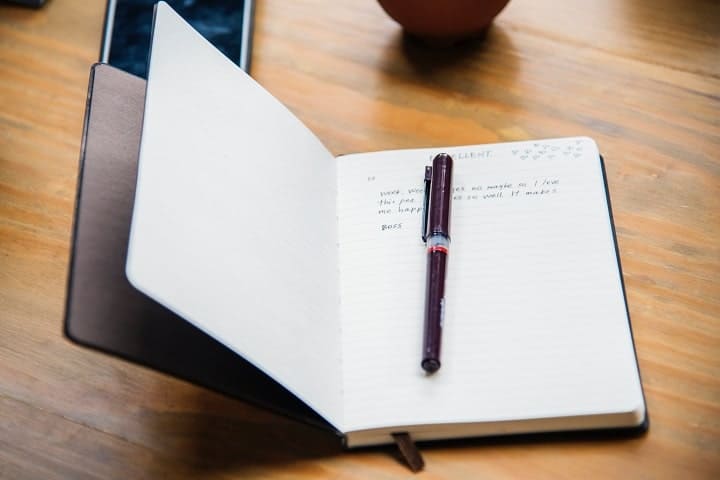
Example #1 of a reflective essay:
The misgivings about the high school football.
Football (soccer) was on the pedestal during my high school years in Poland. You were not judged by the color of your skin (because everyone was roughly the same color) nor by the contents of your character. The worth of a human being is measured by the ability to score goals. Each player had to find their niche in the dominant hierarchy of the pitch. It all started with the selection of players. The gym master would choose two captains at the beginning of the match, and they would choose their teammates. One by one, the best players got picked, and as we went down the line, we were left with the wretched souls, the worst, the smallest guys, or the fat ones, whose self-esteem was shattered from the beginning, simply because they were picked last. But there was a ladder within a ladder. Some players, perhaps in the lower echelons would be defenders, some would be proud midfielders, pushing the ball forward and creating “situations”. Some were the goalkeepers who were chosen for the job because they couldn’t play ball, or because they were specialists, sporting keeper gloves, and getting admired for their technical skills. But the true apex of the hierarchy was occupied by the attackers. The guys who could push through others and ram the ball through the goalkeeper were the true heroes of the field. This self-generated order of youthful self-worth and self-concept was brutal, as it was instructive. Each football match was a psychology class and a lesson in the ways of the world that outweighed math, history, or geography by orders of magnitude. We could witness the natural constellation of humanity based on their genetic makeup and their willingness to face their fears.
Here’s a second, shorter sample of a reflective essay:
The sources of love for instrumental music..
There’s a question I can’t quite answer. Why do I love instrumental music so much? And why, and I’m especially enamored with the music of the East? The Persian, the Indian, the Afghan, the Japanese, the Turkish, the Kurdish, the Arabic? Since I first discovered these musical notes, my life was never been the same. Recently I watched a great documentary about Quincy Jones where he said he touched his first piano at twelve, and these first few taps of fingers defined the rest of his life. Isn’t that strange, that in reality, we don’t choose things? The things choose us. Where do these natural inclinations come from? It must be our environment, our personality, our natural talent. But the other part seems mysterious, like some sort of cosmic accident. I first heard about the Oud when reading “My Name is Red” by Orhan Pamuk. I instantly went online to hear this instrument and from there on, I discovered dozens of beautiful instruments such as tar, setar, sitar, buzuq, sarod, tabla, rebab, shakuhachi, quin, biwa, to the goddamn gamelan drums. Hearing the esraj in a tower of the ancient Indian fort in Jodhpur melted my heart. It was as if this melody was constructed just for me like I’d heard it before. Perhaps in another life.
Looking backward, moving forward
There are certain milestones in your life: finishing high school, falling in love for the first time, your first journey abroad, the first kiss, the first psychedelic trip, graduating from the university, getting your first job, getting married, having children… Each of these brings something new and unexpected and makes you grow as an individual. But you can run through life and never reflect on how it all changed , how silly and incompetent you were just a few years ago. And how you’ll think the same thing about the present in a few years. Perhaps you should compose a reflective essay and think about all of this, and about what’s coming. Next up, you may want to explore a list of the best essays of all time .

Get your free PDF report: Download your guide to 80+ AI marketing tools and learn how to thrive as a marketer in the digital era.

Rafal Reyzer
Hey there, welcome to my blog! I'm a full-time entrepreneur building two companies, a digital marketer, and a content creator with 10+ years of experience. I started RafalReyzer.com to provide you with great tools and strategies you can use to become a proficient digital marketer and achieve freedom through online creativity. My site is a one-stop shop for digital marketers, and content enthusiasts who want to be independent, earn more money, and create beautiful things. Explore my journey here , and don't miss out on my AI Marketing Mastery online course.
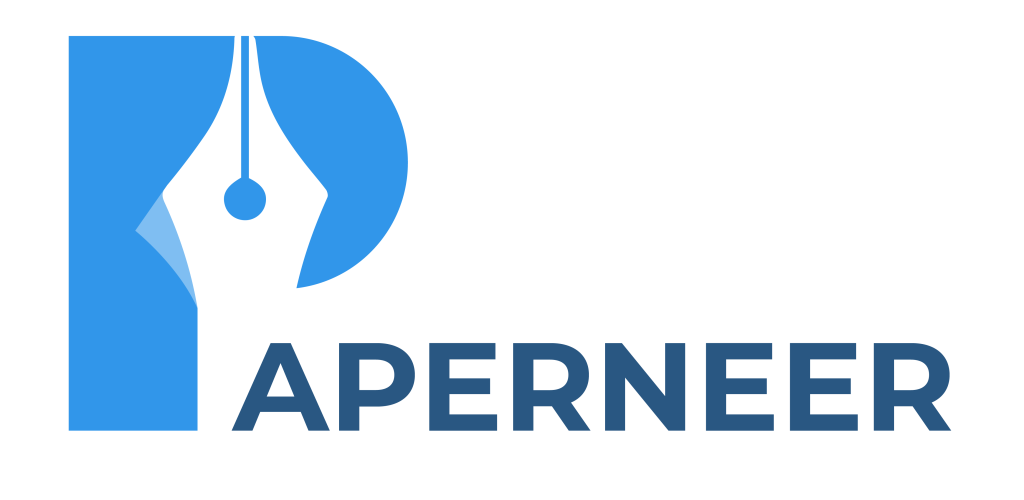
A Complete Guide on Writing a Reflective Essay
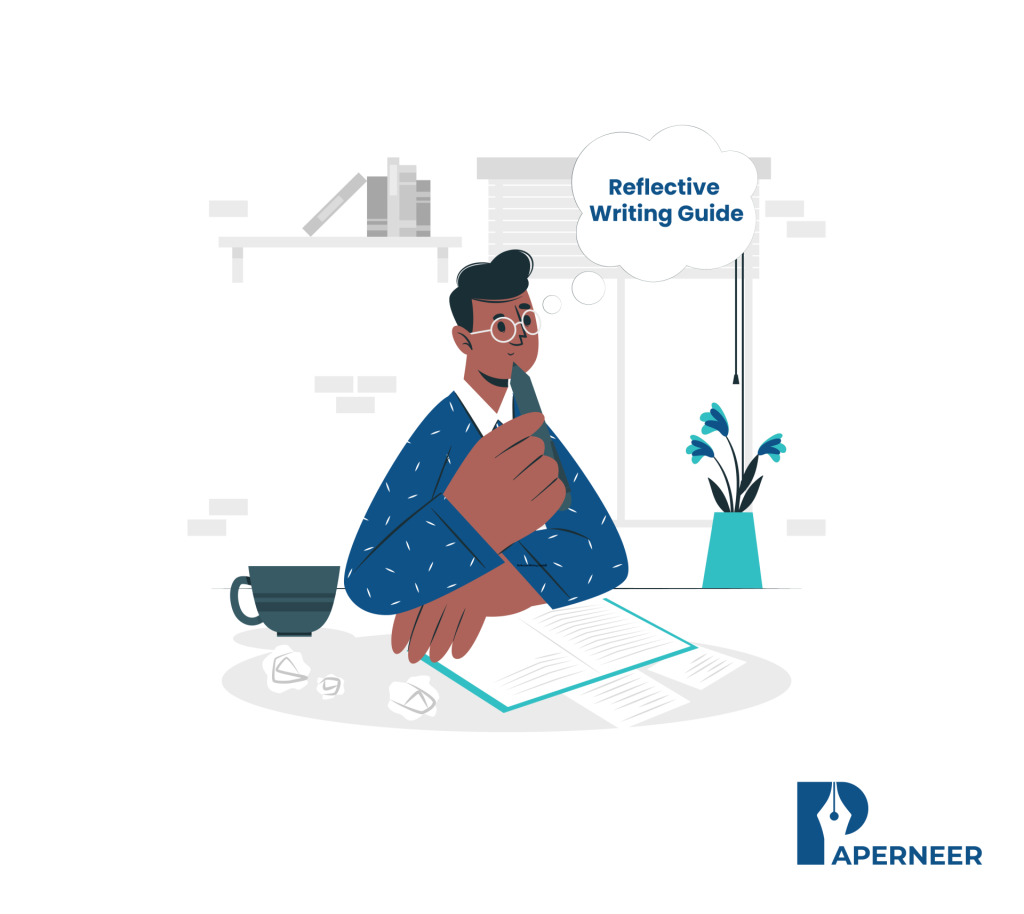
Reflective essay writing permits you to investigate and interpret personal experiences or events, providing insights into your thoughts and feelings. This Reflective Writing Guide covers everything you wish to understand to craft participating reflective essays. From understanding the essay sort to finding the proper format and examples, this guide can assist you in exploring self-reflection through effective writing.
In this blog brings y ou:
• What is a Reflective Essay?
• what is the aim of writing a reflective essay, • types of reflection essays, • how to begin a reflective essay, • how to write a reflective essay, • reflective essay examples with analysis, • reflective essay format, • tips for writing a decent reflective essay, • reflective essay topics, what is a reflective essay.
A reflective essay may be one style of written work that focuses on experiences and gives way to one’s feelings, thoughts, and development over time. Reflective essays facilitate uncovering, but an Associate in nursing experience has fashioned your perspective or influenced your future actions. They’re typically written at intervals, focusing on self-examination and knowingness. Reflective essays dissent from entirely different essays by encouraging a personal, subjective perspective, emphasizing lessons learned from experiences rather than merely narrating events.
Reflective essays typically follow a typical structure but, in addition, yield flexibility similarly. They aim to foster a deeper understanding of the self and explore topics of a decent style, from necessary life events to everyday occurrences.

What is the aim of writing a Reflective Essay?
Reflective essay writing is aimed at examining one’s mindset, Experience, and feelings about a particular event or subject. Unlike other essays that may strictly focus on logical facts and analysis, a reflective essay allows one to be free and express oneself fully. This sort of writing will enable you to think about how specific experiences have affected you, encouraging you to look at your feelings, reactions, and the changes they will have brought. Moreover, it helps you perceive your thought processes , which may be helpful not just for personal growth but conjointly in enhancing knowingness.
In addition to fostering personal insight, a reflective essay aims to speak about your experiences in an exceedingly way that resonates with others. By sharing your reflections, you produce a chance for readers to relate to your journey, presumably enabling them to replicate it in their own lives. For instance, after you discuss overcoming a challenge, readers will connect with the emotions concerned, making your expertise meaningful to them. Moreover, reflective essays typically encourage readers to have confidence; however, they might react in similar ways, promoting sympathy and understanding.
Another vital purpose of a reflective essay is to spotlight your growth and learning. Through Reflection, you’ll be able to establish lessons learned from numerous experiences, which, in turn, could form future choices and behaviors. This reflective method not only documents personal development but conjointly reinforces essential skills, like crucial thinking and analytical reasoning. Thus, whereas a reflective essay could appear personal, it serves a broader purpose by enhancing communication, deepening self-understanding, and fostering connections with readers. Writing reflectively, therefore, becomes a valuable tool for each style and also the development of meaningful connections with others.

Types of Reflection Essays
Reflective writing comes in several formats, every with a singular focus. Here, square measure the common types:
Personal Reflection: In these essays, you mirror your experiences and how they formed you.
Academic Reflection: Usually assigned in faculties, these essays analyze what you learned from a selected category or project.
Professional Reflection: Employed in fields like nursing, teaching, and social service, these essays facilitate mirroring skilled practices and lessons.
Critical Reflection: This assessment needs analyzing expertise, considering multiple viewpoints, and evaluating personal growth.
Each reflective essay style incorporates a distinct approach, and understanding these sorts helps you tailor your essay consequently.
How to Begin a Reflective Essay?
Starting a reflective essay will feel difficult; however, many vital steps make it easier:
Choose a meaty Topic: Replicate experiences that had an impression on your life or formed your thinking.
Understand Your Purpose: Clarify whether or not you’re writing to entertain, inform, or inspire.
Create associate degree Outline: Organize your thoughts before writing and what specific details you wish to debate.
Introduce the Experience: Begin with a quick summary of the event or expertise, capturing readers’ attention.
Setting up your reflective essay thoughtfully is essential because it sets the stage for deep, meaty Reflection throughout.
How to Write a Reflective Essay?
Here’s a bit-by-bit Reflective Writing guide to assist you in producing a well-structured essay:
Introduce Your Reflection: Begin by briefly introducing the event, describing it, and explaining why it’s purposeful.
Describe Your Emotions and Reactions: Discuss however you felt and reacted throughout and once the expertise.
Analyze the Experience: Replicate why the expertise was essential and what you learned from it.
Make Connections: Link your expertise to broader ideas, theories, or life lessons.
Conclude Thoughtfully: Summarize the teachings and how this expertise can form your future actions or thinking.
Following these steps ensures your reflective essay remains centered, engaging, and purposeful.

Reflective Essay Examples with Analysis
Examining samples of reflective essays will give inspiration and clarity. Here’s a way to analyze them effectively:
Identify the Structure: look into how the introduction sets up the Reflection and how the conclusion wraps up the teachings learned.
Analyze the Language: Reflective essays typically use an informal, nonetheless skilled tone. Hunt for descriptive language that conveys emotions and insights.
Observe the Transitions: The author moves from description to analysis, making a swish flow within the narrative.
Reviewing examples helps you find a way to balance personal insights with structured analysis, making your reflective essay a lot more compelling.
Reflective Essay Format
The typical format for a reflective essay includes three main sections:
Introduction: Introduce the expertise, provide background, and set the tone.
Body: This can be the core of your essay, wherever you describe and analyze the expertise. Use every paragraph to explore different aspects, from emotional responses to insights gained.
Conclusion: Summarize your reflections and actions on the general lesson or impact of the expertise.
A well-organized format is essential to maintaining coherence, ensuring your reflections area unit is conferred logically and thoughtfully .
Tips for Writing a Decent Reflective Essay
Writing a reflective essay is often difficult. However, the following pointers can guide you:
Be Honest : Reflective essays work best once they are authentic and private.
Use Descriptive Language: Vivid descriptions build your expertise, which is relatable and fascinating.
Keep It Focused: Avoid going off-topic: Target a selected expertise or lesson.
Use Transition Words: Sleek transitions guide readers through your thoughts and reflections.
Edit Carefully : Ensure your essay avoids synchronic linguistics errors and guarantees clarity.
These tips can help you build your reflective essay to be impactful, engaging, and gratifying to browse.
Reflective Essay Topics
Choosing a subject that resonates with you is crucial for writing a reflective essay. Here square measure some exalting topic ideas:
- Conversation
- Accomplishment
- Self-discovery
- Inspiration
Each topic provides a pathway for discovery, making your reflective essay distinctive and perceptive.
This Reflective Writing Guide provides a roadmap for making powerful reflection essays. Reflective writing permits precise personal growth and awareness, helping you interact with readers meaningfully. By understanding what a reflective essay is, selecting AN impactful topic, and following a structured approach, you’ll produce perceptive essays that capture each of your expertise and its significance. Whether or not for educational or personal growth, reflective essays open doors to deeper understanding and expressive style.
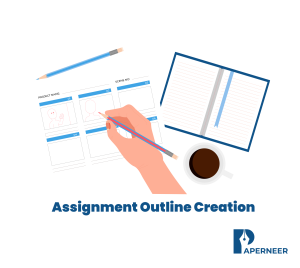
Assignment outline Creation for higher Organization and Clarity
Assignment Outline Creation For Students Creating a solid and well-structured...

Types of Debate – A Complete Overview & Examples
Types of Debate – Comprehensive Writing Guide Debates have continuously been vital for exchanging ideas and...
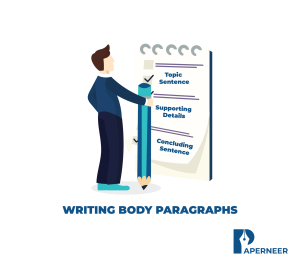
Mastering the Art of Writing a Body Paragraph: Tips for Essays
A Guide for Writing a Body Paragraph Writing a body...
- Essay Guides
- Main Academic Essays
How to Write a Reflective Essay: A Quick Guide + Examples
- Speech Topics
- Basics of Essay Writing
- Essay Topics
- Other Essays
- Research Paper Topics
- Basics of Research Paper Writing
- Miscellaneous
- Chicago/ Turabian
- Data & Statistics
- Methodology
- Admission Writing Tips
- Admission Advice
- Other Guides
- Student Life
- Studying Tips
- Understanding Plagiarism
- Academic Writing Tips
- Basics of Dissertation & Thesis Writing
- Research Paper Guides
- Formatting Guides
- Basics of Research Process
- Admission Guides
- Dissertation & Thesis Guides

Table of contents
Use our free Readability checker
A reflective essay is a type of writing where you explore how an event, experience, or concept has influenced your development or perspective. It involves deep thinking, self-analysis, and personal reflection. In a reflective essay, you explai what you learned and how you changed as a result of that experience.
In this article, you will learn how to write a reflective essay, and how to highlight impactful experiences. A reflection essay seems easy as you don’t have to defend one’s point of view or convince the reader of something. But it has its challenges, so we recommend to keep on reading and find out everything you need to know about this type of essay. More complex examples are available down below.
What Is a Reflective Essay: Definition
A good question to start with is, “What is a reflective essay?” A reflective essay is a type of academic writing, in which the student has to test personal life experience/position towards a particular topic. Unlike in argumentative writing, the student does not have to defend the personal position. It does not require a complicated, professional language with some terminology. Do not define something - focus on sharing personal life experience, skills, development, and the most vivid examples to illustrate the topic.
Reflective Essay Format
A reflection essay student writes to meet the college writing standards has a different format from the one a magazine writer should present to reach the issue’s audience. However, each reflective paper has a similar outline. Reflective essay format depends on the general requirements your teacher provides. Some of them can ask for a specific format for your essay. APA writing style , MLA, and Chicago are the basic formats you can use. But if you don’t know exactly which formatting to use, you can use reflective essay apa format. This is the most common college essay format, so knowing its requirements is critical: Font: Times New Roman, 12 points Interval: Double interval Margins: 1 inch all round Page Numbers: Insert a title in the upper left corner of each page.
Reflective Essay Outline and Structure
Knowing how to write a reflective essay is essential. Even if you feel confident about your thoughts and knowledge, don’t start your writing without a clear and well-designed plan. Without logical essay structure , your essay will likely achieve lower marks. To avoid this situation, follow 10 easy steps we provided below. The first thing every student needs to understand how to write a good reflective essay is an effective, detailed outline. It has 3 typical sections: introduction, body paragraphs, and conclusion. Writing a reflective essay does not require any references – the only person to refer is the student who decides to share his thoughts & ideas. Let’s look at 4 main reasons to include an outline of reflective essays.
- An outline assists in laying out the details the student wants to leave after narrowing down the draft before working on the final paper. It prevents them from concluding the essay by realizing something is missing.
- An outline provides a clear, concise roadmap, which prevents the writer from taking curvy paths and facing dead ends. It shows the way like a compass in the woods.
- An outline helps to save a lot of time.
- An outline helps the potential readers, including teachers & classmates, to avoid falling off the main point when reading the essay partially.
Reflective essay outline is not much different from other types of essays. Use this reflective essay template in creating your perfect reflective essay:

How to Start a Reflective Essay: Creating an Introduction
Let’s figure out how to write a reflective essay introduction. Start with stating the primary focus of the personal reflection. Avoid being indirect and covering a range of topics; stay direct and concise by underlining the basic purpose of sharing a life experience. Professional Opinion:
“Giving a preview of the most exciting part of the story is a clue. The target reader may lack time to read the full piece from cover to cover. “There are many things I have learned from Marketing class. The most valuable lesson I have obtained is checking the effectiveness of 2 different approaches or services through utilizing so-called A/B testing.” It will make the reader think about what is special about this specific method. The reader will go on reading the body paragraphs to find out!” Professor Hemsworth, History & Anthropology teacher and academic writer at StudyCrumb
Another way to attract attention in the introductory paragraph is to come up with the intriguing hook for essay sentences like statistics, fact, quote, metaphor, rhetorical question, or joke. It depends on the mood of your reflective narrative.
Working on Reflective Essay Thesis
Some people may say that a reflective essay does not need a thesis. However, the example shared in the previous section talking about introduction is an example of the inspiring thesis statement. Include at least a reflective summary of the primary idea. The best idea would be to focus on previewing the peak of the plot development or highlighting the most valuable lesson learned. Let’s take a look at this little reflective essay thesis sample.

If you find it challenging, rely on our professional essay writing service and have your reflective essay done with academic standards in mind.
Writing a Reflection Essay Body Paragraph
What is the purpose of a body paragraph ? The body paragraphs of the reflective analysis interpret the way the author evolved or what he/she has absorbed from a particular life lesson (mention 3 different lessons). When writing your reflective essay you should mention the circumstances that forced you to pass a certain way. If you study a subject like English Literature or Arts, the paper’s prompt may ask you to describe how you changed as a field professional during the course of study. It is important to choose a specific interval of time to list the improvements. Compare & contrast the initial skills to the knowledge you have today. It is a great idea to tell the audience the ways various tasks, challenges, and lessons made the author grow since the beginning of his education. There is no need to conduct research to collect the supporting evidence. The author alone is responsible for defending every stated claim with the help of vivid samples that describe the topic the best. Example: In case the student has become more professional in the field of writing, he should list the causes of those changes (new English teacher, more practice at home, part-time job related to the field of writing). Who knows – some of the ideas may be used by other students to succeed!
How to Write a Reflective Essay Conclusion
The question of how to end a reflection paper is not less important. The last challenge is to prepare an impressive, inspiring, and powerful conclusion, which will make the target readers want to develop the same positive way. Write a reflective summary regarding the way you have changed over a given period of time. Share some forecast by looking ahead: how the experiences listed in the essay would influence further personal development. By looking at the past events, decide which of them was the most important. The good idea is to compare & contrast past and future events to stress the gaps between the obtained skills and experience, possibly gained in the future. Don't want to bother with writing any conclusions? Use a summary maker to generate e reflective essay conlusion in seconds.
How to Write a Reflective Essay: 10 Easy Steps
Writing personal reflection helps students to stress their individuality by highlighting various skills, knowledge, behavior, feelings, and even mood. The purpose of writing a reflective essay is to show how the person changed over time and what factors played an important role in those metamorphoses. Keep on reading this section to learn steps that will make your reflective writing perfect. Step 1: Think of the questions that interest you the most. It may be your experience, feelings, or an event in life. Make sure you analyzed the question well. Check credible sources and collect relevant information. Step 2: Decide what you want to write about. Make sure you know how to title an essay . Identify the topic. Step 3: After you decided on a topic, create an appealing title that will entice readers. Make sure your title is clear and to the point. Step 4: Create an outline of your essay. Step 5: Create an attention-grabbing hook for reflective essay. It should be some intriguing sentence or phrase that will arouse the interest of your readers. Step 6: Create an introduction of your reflection paper. Step 7: Think what you will include in the main body of your text. Start writing your body paragraphs. Step 8: Diversify your text with all the necessary details to make your readers see a clear picture of the environment in your story. It can be some place, people, atmosphere, etc. Step 9: After the reader is already familiar with the setting and characters, you should tell about yourself. What were your feelings? How has the situation affected you? What did you learn from this situation? Step 10: Conclude your reflective essay. Briefly summarize all the points that were mentioned in your text and provide a short moral with recommendations. You can use these steps as a checklist for your writing process. In case you need another step-by-step guide on response essays or any other type of writing, we've got you covered.
>> Read more: How to Write Essays
Reflective Essays Sample From Successful College Students
No recommendations, tips & tricks help the students to understand the way a particular assignment should look like in the end as effectively as the examples. The article contains one of the up-to-date reflective essay examples from a college student.
Writing a Reflective Essay: Bottom Line
Congratulations, we have learned how to write a reflective essay. We really do hope that our guidelines, tips, and examples were useful to you. Now, you can definitely work on your reflection assignment with a clear understanding of its structure and main points. So start your writing, and the sky's the limit!
In case you need more writing tips, feel free to browse our Blog. Be it a diagnostic essay , a synthesis essay or a response paper , we have tutorials for any type of writing.
Consider buying essay papers in case you've got other plans for the evening. Submit your details to StudyCrumb and get an astounding paper written in line with your requirements. Your assigned writer will handle any assignment with a blink of an eye!
Frequently Asked Questions about Writing a Reflective Essay
1. what is a common mistake when writing a reflective essay.
A common mistake when writing a reflective essay is to drift away from the subject you're writing about. It usually happens when you don’t stick to your initial plan. So plan your writing well and if you feel that you go a bit off topic, be sure that you return to the same topic you originally discussed.
2. What is the purpose of writing a reflective essay?
The purpose of writing a reflective essay is to make a student write about their personal experience, explore it, reflect on it and find positive and negative aspects. The goal is to analyze how a student changed due to this experience and what made them change. What lesson a student learned is an essential point in persuasive writing.
3. How to write a reflective essay on a book?
If you are writing a reflective essay on a book, the main task is to show your teacher how you reflect on a chosen book, how you understand the problem presented by an author. To create a good essay, start with brief information about the author. Then, without spoilers, briefly summarize the main points of a book. After that explain the main conflicts, share your impressions. Ask questions like: “What are the peculiarities of the main characters?”, “What did an author want to say by indicating the main issues?”

Daniel Howard is an Essay Writing guru. He helps students create essays that will strike a chord with the readers.
You may also like


IMAGES
VIDEO